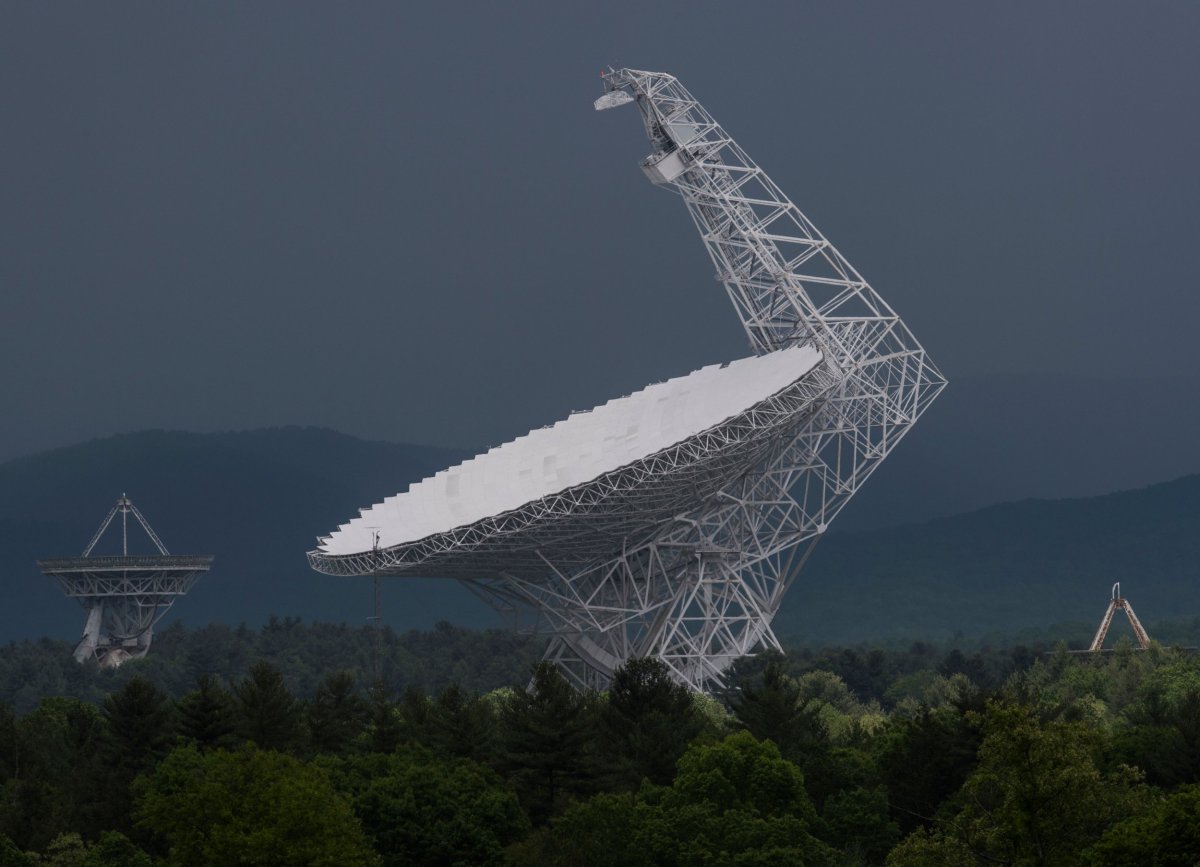Scientists have used artificial intelligence to uncover 72 previously undiscovered fast radio bursts (FRBs)—mysterious space signals that travel billions of light years through space and flash for just a fraction of a second—the alien-hunting Breakthrough Listen project has reported.
Nobody knows the origin of these elusive, quick-fire signals, but researchers have speculated that some of them come from neutron stars sitting near black holes, interstellar clouds or nebulas. Some even think they might be a sign of alien life. Most FRBs are only detected once, but one—FRB 121102—has bleeped again and again.
Researchers with Breakthrough Listen—a program supported by scientists like the late Stephen Hawking—used the Green Bank Telescope in West Virginia to probe the repeating FRB back in August 2017. Vishal Gajjar, of UC Berkeley, and his team initially found 21 bursts from a galaxy three billion years away in data gathered over a five-hour period.
Scientists have now developed a machine learning algorithm that pried dozens more FRBs from the same dataset. UC Berkeley doctoral student Gerry Zhang and colleagues' neural network-based algorithm sifted through some 400 terabytes of data to reveal the additional FRBs. According to Breakthrough Listen, this kind of tech is used to optimize search engines and sort through images.
The new results suggests the bursts aren't received in a regular pattern, the program stated. This kind of information, scientists hope, will help narrow down possible explanations for FRB sources. Both Zhang and Gajjar's research papers have been accepted for publication in The Astrophysical Journal.

"This work is only the beginning of using these powerful methods to find radio transients," Zhang said in a Breakthrough Listen statement. "We hope our success may inspire other serious endeavors in applying machine learning to radio astronomy."
"[Zhang's] work is exciting not just because it helps us understand the dynamic behavior of FRBs in more detail," remarked Berkeley Search for Extraterrestrial Intelligence (SETI) Research Center Director and Breakthrough Listen Principal Investigator Andrew Siemion, "but also because of the promise it shows for using machine learning to detect signals missed by classical algorithms."
Although they appear across the sky, telescopes likely miss out on scores of the mysterious bursts because they usually monitor relatively small regions. Scientists recently started using the Canadian Hydrogen Intensity Mapping Experiment (CHIME) to search the skies for FRBs. With a large field of view, researchers hope the telescope will radically improve the number of weird flashes spotted traveling through space.
Even though some scientists think the signals might have alien sources, others say this is unlikely. Gajjar previously told Newsweek he didn't think they were coming from distant alien civilizations because the bursts "occur all over the sky and show similar properties." If aliens wanted to get in touch, they might modify signals like FRBs to communicate their artificial nature, he said.
Uncommon Knowledge
Newsweek is committed to challenging conventional wisdom and finding connections in the search for common ground.
Newsweek is committed to challenging conventional wisdom and finding connections in the search for common ground.
About the writer
Katherine Hignett is a reporter based in London. She currently covers current affairs, health and science. Prior to joining Newsweek ... Read more
To read how Newsweek uses AI as a newsroom tool, Click here.








